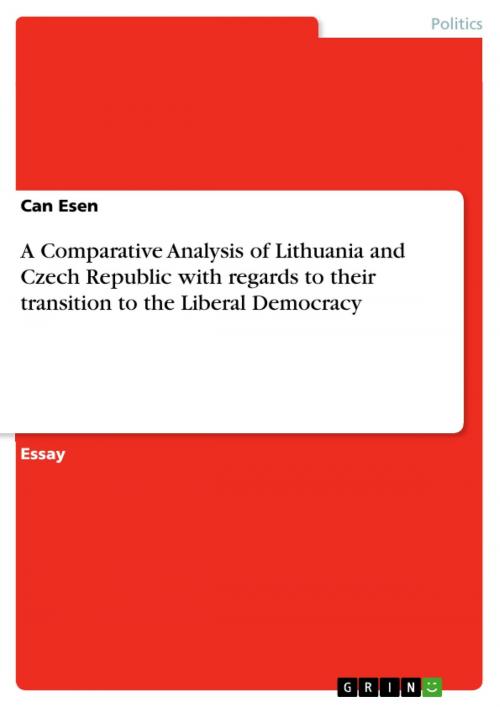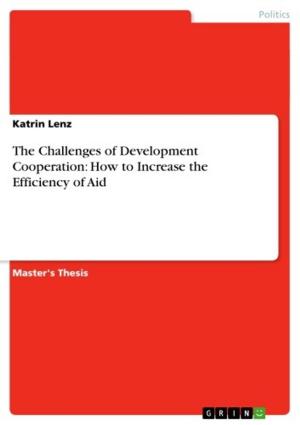A Comparative Analysis of Lithuania and Czech Republic with regards to their transition to the Liberal Democracy
Nonfiction, Social & Cultural Studies, Political Science| Author: | Can Esen | ISBN: | 9783656215066 |
| Publisher: | GRIN Publishing | Publication: | June 12, 2012 |
| Imprint: | GRIN Publishing | Language: | English |
| Author: | Can Esen |
| ISBN: | 9783656215066 |
| Publisher: | GRIN Publishing |
| Publication: | June 12, 2012 |
| Imprint: | GRIN Publishing |
| Language: | English |
Essay from the year 2011 in the subject Politics - International Politics - Topic: European Union, grade: A, Saint Mary's University, course: Comparative Politics, language: English, abstract: Following the collapse of the Soviet Union, many countries in the Eastern Europe, which were formerly a part of USSR, went into a period of rapid transition from being authoritarian regimes to the more democratic ones. This transition included the dissolution of the former Soviet institutions, re-creation of their national identities at the state level which was formerly oppressed, broadening the citizenship rights and obligations, embracing the norms of liberal democracy and a switch to a market oriented economy. The process of transformation of the 'illiberal states' to the 'liberal ones' was arguably a part of the same wave of democratization in a global context which is generally referred as the 'Third Wave of Democracy' by scholars such as Samuel Huntington. It was expected that as a result of this transition, all countries which were formerly a part of Soviet Union would embrace the ideas such as democracy, rule of law, private property, free and fair elections and civil society. However, these new ideas along with the others such as civil society and active citizenry were not in the same line with the ideas in the communist USSR. Thus, there were a series of problems to overcome for the post-Soviet countries for democratization.
Essay from the year 2011 in the subject Politics - International Politics - Topic: European Union, grade: A, Saint Mary's University, course: Comparative Politics, language: English, abstract: Following the collapse of the Soviet Union, many countries in the Eastern Europe, which were formerly a part of USSR, went into a period of rapid transition from being authoritarian regimes to the more democratic ones. This transition included the dissolution of the former Soviet institutions, re-creation of their national identities at the state level which was formerly oppressed, broadening the citizenship rights and obligations, embracing the norms of liberal democracy and a switch to a market oriented economy. The process of transformation of the 'illiberal states' to the 'liberal ones' was arguably a part of the same wave of democratization in a global context which is generally referred as the 'Third Wave of Democracy' by scholars such as Samuel Huntington. It was expected that as a result of this transition, all countries which were formerly a part of Soviet Union would embrace the ideas such as democracy, rule of law, private property, free and fair elections and civil society. However, these new ideas along with the others such as civil society and active citizenry were not in the same line with the ideas in the communist USSR. Thus, there were a series of problems to overcome for the post-Soviet countries for democratization.















